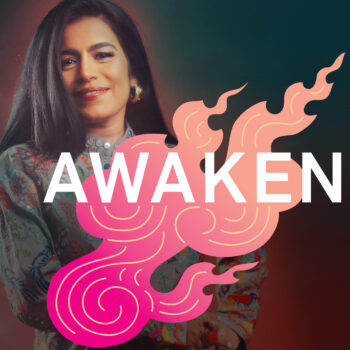
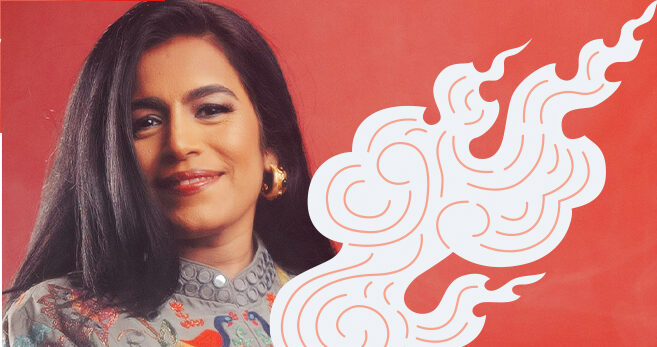
If faced with bravery and awareness, conflict can bring great insight into what is right or needed. From the Buddhist perspective, it’s not the conflict itself that matters, but how we react to it. Because if we are too guarded, protecting ourselves from the difficult emotions that come with conflict, we might miss out on the opportunity for growth and new possibilities.
MICHELLE TEA:
My divorce was very sudden and unexpected.
FALU:
Author and poet Michelle Tea.
MICHELLE TEA:
And I really was like, “Oh, we’re married, so we’ll be married forever.” You know, like, I really did believe that. So it was very shocking. But instead of thinking of it being cliché, I’ll just think of it being universal. How’s that?
FALU:
Welcome to AWAKEN, a podcast from the Rubin Museum of Art about the dynamic path to enlightenment and what it means to “wake up.” I am singer and songwriter Falu. At the Rubin, a museum dedicated to art from the Himalayas, we believe art can nurture awakening. This season, we delve into the notion of life after—those big transitional moments throughout our lives that propel us into the unknown. We’ve gathered artists, writers, scientists, poets, Buddhist teachers, and others to explore the key events and characteristics of a human life—from birth to death and everything in between—as well as grapple with the ultimate mystery: the afterlife.
Their stories offer insights on how to approach change with openness, even amid possible grief or joy, fear or excitement. And with art from the Rubin Museum as the connecting thread, we can make even better sense of those changes. Because art has the ability to wake us up to what is possible.
In this episode: conflict. I don’t know about you, but when I hear the word conflict, an immediate sense of disconnect comes up. As highly respected Tibetan Buddhist meditation teacher and author Yongey Mingyur Rinpoche says…
YONGEY MINGYUR RINPOCHE:
There’s no flexibility, no openness, no connection, interdependence, so then conflict comes. The opposite of awareness, love and compassion, wisdom, then slowly, slowly, a problem comes in the family, in the work, in the social settings, it may go everywhere.
FALU:
And yet, we know that it is often in moments of conflict, in say, our darkest moments, that insight comes, that a new sense of what is right or what is needed comes. It takes bravery and awareness to allow oneself to see that, and to be open to the learnings of conflict. But if we can, then the learning can be all the deeper. And there are many kinds of conflicts: between people, between nations, within ourselves. Author and poet Michelle Tea speaks about a conflict that comes with a break up.
MICHELLE TEA:
We were polyamorous, and that happened, because, basically because my spouse had cheated on me.
KAY TYE:
There’s conflict in the individual brain. You know, there can be competing needs and mechanisms.
FALU:
Neuroscientist Dr. Kay Tye can illustrate how conflict presents itself in our mind.
KAY TYE:
There’s some cognitive dissonance. But I often think of conflicts as in between individuals, and how we decide to view ourselves as either—you know, what’s our alignment with this other social being?
Are we allies? Are we adversaries? Are we, you know, how… What is the premise for our interaction? Is this going to be a collaboration? Is this going to be a competition?
FALU:
All the things that come up in relationships.
KAY TYE:
Those sort of preset expectations are going to have huge impacts in coloring subsequent interactions.
MICHELLE TEA:
I really just didn’t think they were a person who would do that. It seemed really counter to the way they presented themselves and the way they spoke about commitment and marriage and us. So it was really shocking. But when the debris settled a little bit, you know, there was part of me that could of course understand that like, got that they just sort of like bottomed out to the temptation of just getting to be new for somebody, getting to be the new person, and feeling those dopamine vibes from a new connection, and being with someone who sees them, you know—they’re not the parent, they’re just like this new dazzling creature. And so I had a lot of compassion for that.
So one morning when we were having breakfast after they had been out partying the night before, they were like, “This girl wanted to make out with me in the bathroom last night.” And I was like, “Oh my god! Did you do it?” And they were like, “Well, I told her that I had to talk to my wife.” And I was like, “Well, that’s ridiculous. Like, how? That’s not even possible! You’re there at the bar, I’m in bed sleeping. Like you can’t—that’s either a—that’s a yes or no question in that moment for you, and you said no.” And I was like, “You could have done it.” And they said, “Well, she gave me her phone number.” And I was like, “Whoa, wait a minute. That’s very different. That’s not like two ships passing in the night. That’s like a ship that just like docked at your port,” you know? You have her phone number. I was like, “Well, that’s like—dating people. That means you’re going to set up a date. Are we going to date people? Do you want to do that?”
And then they met somebody that they really liked. And things got really confusing.
I had so much going on. I was jealous, which I expected that I would be. Like I didn’t expect that polyamory would be like this, like, “Oh, everything’s fine, and no one ever is jealous.”
So I was sort of left to my own devices, and started sort of downward spiraling.
SPRING WASHAM:
Well, usually we don’t always have control of that. Right? It’s like we’re just sucked into the dance.
FALU:
Meditation teacher and author Spring Washam.
SPRING WASHAM:
We’re like Alice in Wonderland; we just slip. We slip on a banana peel, and then we start descending. We start the descent. And I think of it as an important time, because usually, we are available, you know. Everything stops at this time, usually. It’s like we’re dancing, and then everything comes to a grinding halt. Usually something jarring when we enter into a death phase. Like, you know, that’s often when people get sick or they’re injured. What happens: physically you can’t move.
MICHELLE TEA:
It just got to the point where I was anxious all the time. I knew something bad was going on in my marriage. And my ex just wouldn’t acknowledge it, and would just deny it—deny, deny, deny—and be like, “You need to calm down.” Like, basically, like, “You’re crazy.” I was like “Ok, I’m crazy, then!” And I got into therapy, and I was in therapy, just being like, “I don’t know why I’m having such a hard time handling this.”
FALU:
Buddhist teacher and author Yongey Mingyur Rinpoche.
YONGEY MINGYUR RINPOCHE:
So, an unexpected thing comes normally, If you’re expecting “I’m going to divorce” and this happen, and suddenly divorce, of course there’s a bardo moment but not so clear.
FALU:
Despite how uncomfortable this all was, Michelle was in this valuable moment. The bardo can be any transitional space in between two points, and it offers a moment where the possibility for insight or awakening is amplified.
YONGEY MINGYUR RINPOCHE:
So in that time, if we recognize, mind beyond concept, for a while. And whatever we believe, this solidity, all this kind of like grasping, everything, for a while stops.
MICHELLE TEA:
I was hoping for some illumination, but I was really shocked when they were like, “I don’t want to be romantic with Michelle anymore.” Like they didn’t even say it to me; they like said it to my—to my therapist, as I was sitting there. And I was like, “Oh my god, this is so weird,” I feel like I’m like hovering over my body.
I just sobbed. There was so much grief and sadness, but there was also so much relief.
YONGEY MINGYUR RINPOCHE:
And that is the big moment there. And that stays—is bardo—effect—again, ripple effect stays days and even months. And those moments in that time, what we call, there’s great opportunity to connect with our innate quality, the innate wellbeing. So, we can really grow new things. We can grow. We can really learn something. We can really transform something, if you bring awareness, if you recognize that, if you embrace that. There’s a lot of teaching how to practice with awareness, love and compassion and wisdom, in that moment. And then you can cut through your imprint, like habitual patterns, all this that comes together from the past can be cut, easily, more easily, during those moments.
MICHELLE TEA:
I think that I had really internalized their avoidance of me, that they had been sort of romantically, sexually, emotionally avoidant of me for a while. And I think I interpreted it—and this is all happening on such a subconscious level, of course—but I think the way that I sort of metabolized it was as if like I was somehow toxic or repulsive.
SPRING WASHAM:
That’s where our trauma is. That’s where we go, deep into the body, because our body is where we’re storing all this stuff. Everything that happens, we just stick it down, and the body will absorb it for years, until—it can’t! It can’t hold it. It has to release. So we need space and time. So sometimes these dark night of the souls afford us this opportunity. And really, we’re in the dance, what they call, of no hope. So everything is going to happen, on its own time frame. So, best to just surrender. Try not to fight. But I understand the desire to fight.
MICHELLE TEA:
It was like—got so dark, so quickly. But, you know I came back out of it.
I hope to not feel that again but it’s there—we have these alarm systems for a reason. So I do hope that next time I’m in a situation where that rises up, that I just do know to trust it. So, I do hope to always hoose my own reality, you know. And I mean one takeaway is—impermanence, right? It is impermanence. And I knew that even at the time. That was something where I just was like, “Okay, well, you know, it’s not anyone’s responsibility to be with you forever.”
FALU:
The reminder of impermanence, that all of this, the joy, the pain, all of it is finite, is so important. And we often forget about it in our day to day. But there are these moments where we’re reminded that all of life is in evolution. And conflict is a reminder of that impermanence. Poet Marie Howe.
MARIE HOWE:
I was talking to a very close friend whose mother has dementia, and how difficult it is for her, for any of us, dealing with parents who don’t remember anything, who then do remember—the inconsistencies of it all, and how one day is going to be so different from the next, and how hard that is for her.
And someone in my life is struggling in other ways, that are very serious. And I’m constantly thinking about her as well. And what I said to my friend is, “Isn’t it difficult—the difficult thing is not to wish for it to be over.” Like just to really be every day, every hour, just keep—just live, without trying to—because it does change. Everything changes. Sometimes things seem—especially when there’s something going on with someone like that—I don’t know how to say this; I just—I just don’t—I want to learn that every minute is really—not to be rejected, and not to be sort of—you know how you sort of cross your arms and hold your breath, and just to get through it? I don’t want to do that.
YONGEY MINGYUR RINPOCHE:
There’s a sense of what we call permanent. This is the way, as it should, my right, I’m here. And suddenly someone cuts that. Then the mind of controlling is not there. Mind of consistency, the permanent, is interrupt. And then, so when we hurt like that, what we have to do? Of course that thing happens, of course. Maybe first important is, try to understand. Maybe first important is, try to understand. Maybe that person having emergency. Who knows? Maybe that person doesn’t see you. Maybe that person really mean, maybe try to do that. So many different factors, so many cause conditions.
MICHELLE TEA:
When I think about this pattern, of the intuition, and then the doubting, and the sticking around, and finding out—in one way, it’s like, oh—there’s one way of looking at it where I’m like, “Oh, gosh, I’m not learning my lesson.”
But then sometimes I think, no, what you learned somehow in spite of it all is that you have to keep trusting people. That relationships actually don’t work if you don’t trust people. And part of trusting people is that they can get away with lying to you, right? It’s like, there’s no, I don’t know how to have it both ways. So sometimes it feels like, “Damnit, this is like my core weakness, and I’m always going to give someone a chance in spite of my internal alarm bells ringing.”
And then sometimes I think, “Oh my god, that’s amazing, that you can still give people chances, after all the times that your internal alarm bells have rung.”
YONGEY MINGYUR RINPOCHE:
When we bring more awareness into that, and connect with the loving kindness, compassion, to learn, to grow—wisdom—a lot of problems are solved by that.
SPRING WASHAM:
You’re forced into the present moment by circumstances greater than you. Or you’re given the opportunity—not everybody uses it as an opportunity when they’re in that cycle. Right? They might fight against that. They might refuse to learn, or refuse to open. But life gives you this opportunity to reflect. It pauses your outer world. Usually there’s a pause. You can’t go to work. Suddenly you can’t get out of your bed. And you’re there with your mind and your heart, and you have to deal with your emotional body. And to feel. And in that feeling, we can learn. We can let go. We have an opportunity to really face, you know, really face the darkness and turn towards the emotions that are sort of in the underworld of our heart, sometimes.
FALU:
Neuroscientist Dr. Kay Tye.
KAY TYE:
The exercise of thinking about common goals, whenever you’re going through a conflict, helps you to maintain empathy, and connectedness, to this other model, rather than, it’s a framing of us versus them, which is very—we have—a survival mindset, of scarcity, in which we need to compete for this limited resource, and it’s a zero-sum game, is a very different mindset than there’s an abundance of resources, and we can cooperate to be able to access them, the most of them.
FALU:
Author and poet Michelle Tea.
MICHELLE TEA:
All of the hype that forgiveness gets, you know, those things are true. It’s nice not to have that weight of resentment kind of burning in my stomach.
The ways in which me and my ex didn’t meet up, or if there were things about our dynamic where-–that I found lacking—I was almost sort of like, “Well, that’s okay. And life goes on. You don’t get everything with every package.” So I had a sort of philosophical attitude towards it. But now that I am paired with somebody who fulfills all these different areas of my life, it’s really awesome.
I mean, it’s really great. And it feels like a return, in a funny way, to a person that I was when I was younger. And I do—I am aware all the time that this—that my marriage had to collapse and die for this other relationship to be able to take root and grow. So, I certainly wouldn’t change anything. It led to this incredible situation where I am treated so well and seen so wholly, you know, so holistically.
FALU:
In the end, Michelle ended up with someone who loves her in a new way and maybe that wouldn’t have happened had she not experienced this break up. Maybe she wouldn’t have had the foundation from which to recognize a solid partnership because of the challenges, the conflicts she faced in the relationship with her previous partner, and everything she learned from that.
Conflict and challenge is often a pathway to insight. Writer and meditation teacher Sebene Selassie.
SEBENE SELASSIE:
My first major split—it felt like a divorce, even though we weren’t legally married—coming on the heels of having worked in refugee camps and witnessing for the first time the just massive devastation of war, up close, I think both of those were huge perspective shifts for me, and allowed me to zoom out to just the variety of suffering that people experience.
Perspective is kind of the ultimate feeling of belonging, because it’s sort of this macro view. It’s a zooming out, that allows you to be part of a much bigger picture, rather than a zooming in that collapses things into that sense of isolation. It’s not so much, well, a comparison of like, oh, well, I’m better off than this person or that person or this situation, or that situation, but more so there is this great human capacity to go through difficulty.
And it’s those people who I met in the camps who had suffered, to me, unfathomable amounts of violence and devastation, and still had intact their generosity and compassion and great wisdom, and forgiveness, and love, that really helped me connect to those same qualities in the midst of my own suffering.
FALU:
Sebene suffered not only through this painful break up, but it was also around this time that she discovered her body was in conflict with itself.
SEBENE SELASSIE:
My diagnosis came about a year and a half after I came back from working in refugee camps in West Africa. So it’s not that I hadn’t witnessed death or seen atrocity that affected others. But again, when it’s in your inner circle, when it’s not external to you and your world, either through a headline or through a reality that might be happening around you but not to you, I think it—I don’t want to speak for everyone in how it affects, but I think it just sort of jostles you in what you think is certain about life and what makes sense.
To me, the gift is not cancer so much, as life. And life includes cancer, but it allo includes dancing and joy and singing and sorrow and loss and grief and beauty. And so, yes, cancer is a gift. But only because it wakes me up to the magic that’s already here in everything in life. So I think, you know, the reason it rubs people the wrong way, that kind of statement, is because it’s ignoring the magic that is all of life. And I think that’s where I would put the emphasis: the gift is not so much just the cancer, it’s really how the cancer wakes us up to the gift that is life.
And one thing that maybe validates me, as a teacher, is the fact that I’ve had so much suffering, and I’m able to still honestly say that, right? And I don’t hide the difficulties. And so, the impulse is to brace and defend. And this isn’t about not having boundaries around things that are harmful or hurtful, but it’s really knowing the difference, and understanding when we’re creating that brittle, hard defense towards life, and whatever life may bring, and realizing that we’re also keeping out and guarding ourselves from the beauty and the gifts by opening up to whatever is present.
FALU:
And that’s the thing about conflict. It can bring great joy and beauty on the other side if you can work through it. But if we become too guarded, protecting ourselves from feeling the difficult emotions that come with conflict, we might miss out on the opportunity for growth and new possibilities.
Again, poet Marie Howe.
MARIE HOWE:
There’s this amazing poet, Andrea Gibson. I read with Andrea years ago, like 12 years ago. I was asked to read in a stage versus page kind of thing. She’s an out-loud performance poet. And it was somewhere on the Lower East Side. I was a mother, single mother of a young girl. I was just draggin myself around after 7:00 at night. You know, I could hardly do anything. And I was walking over there, and as I approached where I thought was the address, there were all these people lined up; like a long, long, long line.
And I got to the front of the line, and I said, “Is this the place?” And they’re like, “Yeah.” I said, “What are you all doin here?” And they said, “We’re going to a poetry reading.” I said, “Well, why are you out here?” And they said, “Well, it’s sold out, so we’re in line to wait, to see if we can get in.” That was not for me; that was for Andrea Gibson. And when I got in there, and Andrea got up, and began to say the poems, I understood why. And now, Andrea has cancer, and she is in that state, of gratitude, for every-thing. And she is no fool.
FALU:
One of the many ways to learn is through art, and in each episode we invited one of our guests to reflect on an artwork from the Rubin Museum’s collection. For Conflict, writer and meditation teacher Sebene looked at a painting of The Fifth Dalai Lama, Ngawang Lobzang Gyatso with Previous Incarnations. The Fifth Dalai Lama lived in the seventeenth century, and he identified himself as an incarnation of the Bodhisattva of Compassion, as well as being a fully ordained monk and political ruler of Tibet. The Dalai Lama was constantly juggling between these roles, with their conflicting interests. He was often pulled apart from one to the other, yet in the end he managed to fulfill all his responsibilities as both a religious and a political leader. The painting shimmers in gold and red and when Sebene Selassie first saw it associated with conflict, she thought she was looking at the wrong image, which in some ways speaks to the malleability of conflict.
SEBENE SELASSIE:
I don’t see conflict in this image. There’s so much gold and softness and flowing. What came to me when I was looking at it, without knowing what the theme was, was the sense of balance in the picture, and the sort of the circular buddhas that surround them, but also the balance in just the flow of the robes, and the balance of the objects on the table, and that sense of symmetry, and harmony, that exist in it. So it sort of for me evoked the opposite of conflict.
So color, and form, and shape, sound, and smells, and things that invite beauty are all art to me. And spaces that invite that sense of harmony and balance and soothing and these qualities that we are naming about this painting are also things that support me in my own feeling of allowing that sense of wellness and healing.
FALU:
Conflict is part of a balanced life. And life without conflict would not have any balance. Ultimately, it’s not what happens to you but how you react to it. What feels negative, challenging, painful, conflicting, can evolve into a deeper love, gratitude, a dance with life, and, in the case of Chella Man, an awareness of the necessity for change. Chella Man self identifies as a deaf, trans, Jewish, Chinese determined, curious, and hopeful person and he expresses these as an artist, director, and author.
CHELLA MAN:
I think that I don’t always view conflict as a negative thing. It’s a more neutral thing. But it has the power to be something truly beautiful of just being—the death, right, of one way of seeing circumstances of something, and the rebirth of a new framework or a new area to explore and grow in.
When I was a lot younger, and I had just come out as queer, in my small Pennsylvania town, in central Pennsylvania, and I was one of the only out queer people in this huge, huge school. For some reason, some girl in my grade had reported me as like watching them change in the locker room, when I was absolutely not watching them change in the locker room. And it was just after I had come out as queer.
And ironically—I have no idea how this happened, but the principal of our school was a lesbian woman, a white lesbian woman, and she herself came to pull me out of gym class. Which I was shocked about, because as I mentioned, our school was huge, and it was wild to me that this was like the priority on the list, that she herself came down, and she pulled me out, and she asked me directly, am I like watching or taking photos or something, of the girls changing? Which I absolutely wasn’t. And I, to this day— I still feel that same shock inside my body when I think about it. But the way that she approached me, I felt that she knew it wasn’t true. And I’m sure this had something to do with her understanding of what it was like to be queer in that area.
And so, it was a conflict that came from, indirectly, from someone in my community, in an interesting form. But it was one of the first times that I remember I had to deal with conflict, in my teens, because of who I was. I just viewed that as very informative.
And I think that moment, like many, I’ve just tried to find information within conflict and understand what is necessary to do with this information. Because obviously with any conflict, emotions come up, and they can be very distracting. And so I do my best now, when there is conflict, to allow my emotions to come out, celebrate them, feel rage in the ways —that I can release, healthily. I think it was very important for me to understand where these invisible boundaries of danger were, where I was, because it allowed me to be more cautious.
I’m not grateful for having to draw those boundaries. I’m not grateful for the danger that I had to feel to draw them. But I am grateful that I was able to take the information from that, and understand how I could potentially keep myself safe until I had the opportunity to leave.
FALU:
Chella Man left that small town and is now based in New York City. He has dealt with these experiences of conflict and challenge by creating work around them and, as he has said, quote “I strive to intentionally direct my energy toward the future I will make happen, rather than any cycles that no longer serve me.” Here, here!
You just heard the voices of Marie Howe, Chella Man, Yongey Mingyur Rinpoche, Sebene Selassie, Michelle Tea, Dr. Kay Tye, Spring Washam, and me, Falu. To see the artwork discussed in this episode, go to rubinmuseum.org/awakenpod.
You can continue the conversation by following us on Instagram @rubinmuseum. And if you’re enjoying the podcast, leave us a review wherever you listen to podcasts, and tell your friends.
AWAKEN Season 3 is an eight-part series from the Rubin Museum. Come visit us in New York City, or explore rubinmuseum.org to learn more about the Museum and about art, cultures, and ideas from the Himalayan region.
AWAKEN is produced by the Rubin Museum of Art with Jamie Lawyer, Sarah Zabrodski, Christina Watson, Gracie Marotta, Tenzin Gelek in collaboration with SOUND MADE PUBLIC including Tania Ketenjian, Sarah Conlisk, Philip Wood, Alessandro Santoro, and Jeremiah Moore.
Original music has been produced by Hannis Brown with additional music from Blue Dot Sessions.
AWAKEN Season 3 and the exhibition Death Is Not the End are supported by the E. Rhodes and Leona B. Carpenter Foundation, Ellen Bayard Weedon Foundation, Robert Lehman Foundation, and The Prospect Hill Foundation. The Rubin Museum’s programs are made possible by the New York State Council on the Arts with the support of the Office of Governor Kathy Hochul and the New York State Legislature. Death Is Not the End is supported in part by the National Endowment for the Arts.
Thank you for listening.
AWAKEN Season 3 is hosted by singer and songwriter Falu. Guests featured in this episode include poet Marie Howe, artist, director, and author Chella Man, Tibetan Buddhist meditation teacher and author Yongey Mingyur Rinpoche, meditation teacher and writer Sebene Selassie, author and poet Michelle Tea, neuroscientist Dr. Kay Tye, and meditation teacher and author Spring Washam. Read more about these guests below.

The Fifth Dalai Lama, Ngawang Lobzang Gyatso (1617-1682) with Previous Incarnations; Central Tibet; 18th century; Pigments on cloth; Rubin Museum of Himalayan Art, gift of the Shelley and Donald Rubin Foundation; F1996.29.3
The Fifth Dalai Lama, Ngagwang Lobzang Gyatso (1617–1682), depicted here holding a lotus and a vase of longevity, was the first theocratic ruler of a unified Tibet. His status is expressed through a language of divine inheritance, the succession of past glorious empires through reincarnation. The Fifth Dalai Lama identified himself as an incarnation of the Bodhisattva of Compassion, Avalokiteshvara, depicted in this painting at top center. Avalokiteshvara was not only the patron deity of Tibet but also the founder of the Tibetan Empire, Songtsen Gampo ([r. 617–650] depicted at top left) was considered his emanation. By asserting himself as an emanation of Avalokiteshvara, the Dalai Lama was symbolically declaring that his was a divine kingship and more specifically that he was in the lineage of the Tibetan emperor who first united Tibet and thus positioned himself as the rightful inheritor of the old Tibetan Empire.
Learn more.
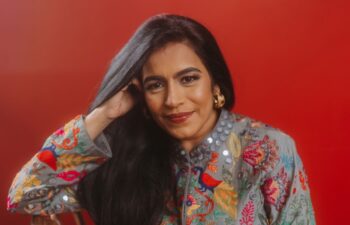
Falu is a Grammy award-winning, internationally recognized vocalist, composer, and educator known for her ability to seamlessly blend a signature modern inventive style with a formidable Indian classically shaped vocal talent. Falu’s career in the United States has led to a series of collaborations with Yo-Yo Ma, Wyclef Jean, Philip Glass, Ricky Martin, Blues Traveler, and A. R. Rahman, among others. She was appointed Carnegie Hall’s ambassador of Indian Music in 2006, and her shows at Zankel Hall have consistently sold out. Falu’s highlight performances include the 2022 GRAMMY Awards Premiere Ceremony and former President Obama and First Lady Michelle Obama’s White House State Dinner. During Diwali in 2022, the Mayor of New York City Eric Adams awarded her a citation for successfully representing immigrants in the city. Later that year she received a proclamation by the NYC Council “for fostering greater harmony around the world.”
Described by the New York Times as “East and West, ancient and modern” and named one of the twenty most influential global Indian women by the Economic Times, Falu continues to record and perform globally, and she serves as the Board of Governor for the Recording Academy’s New York Chapter.
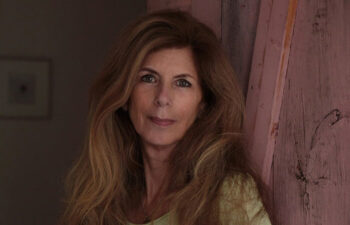
Marie Howe is the author of four volumes of poetry: Magdalene: Poems (2017), The Kingdom of Ordinary Time (2009), What the Living Do (1997), and The Good Thief (1988). She is also the co-editor of a book of essays, In the Company of My Solitude: American Writing from the AIDS Pandemic (1994). From 2012 to 2014, she served as the Poet Laureate of New York State. She is the poet in residence at the Cathedral Church of St. John the Divine and a chancellor of the Academy of American Poets.

Chella Man is an internationally acclaimed artist whose work explores the continuum of identity by deconstructing binaries within and beyond disability, gender, race, sexuality, and morality. His expansive identities as a Deaf, Genderqueer, Trans-Masculine, Jewish, and Chinese artist inform a unique perspective that cannot be limited to one medium. Most recently, he curated a New York Times–featured show highlighting 14 disabled artists under the title Pure Joy at 1969 Gallery. He is the author of Continuum (2021), director of the award-winning film The Beauty of Being Deaf (2021), executive producer of Trans in Trumpland (2021), fashion designer for his collection with Opening Ceremony (2019), actor in the role of Jericho in Titans of DC Universe (2019), and former columnist for Them, Condé Nast’s first LGBTQ+ publication (2018). Man has also worked with institutions such as the Brooklyn Museum, Powerhouse Museum, Performance Space New York, Leslie-Lohman Museum of Art, and Abrons Arts Center.
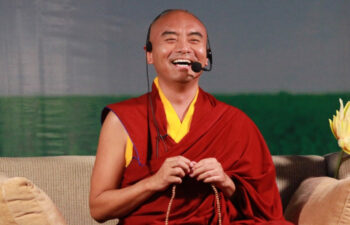
Yongey Mingyur Rinpoche is a recognized tulku of the Kagyu and Nyingma lineages of Tibetan Buddhism, a teacher, spiritual leader, and bestselling author. He possesses the rare ability to present the ancient wisdom of Tibet in a fresh, engaging manner. His profound yet accessible teachings and playful sense of humor have endeared him to students around the world. Rinpoche’s teachings weave together his own personal experiences with modern scientific research in relation to the practice of meditation. He has authored several books including two bestsellers: The Joy of Living: Unlocking the Secret and Science of Happiness, which has been translated into over 20 languages, and In Love with the World: A Monk’s Journey Through the Bardos of Living and Dying. His recent TED Talk is titled “How to Tap into Your Awareness—and Why Meditation Is Easier Than You Think.” Rinpoche teaches extensively around the world and oversees dharma centers, including three monasteries in Nepal, India, and Tibet, and the Tergar Institute in Kathmandu; Tergar meditation communities on six continents; numerous schools in Nepal; and social engagement projects related to health, hunger, hygiene, the environment, and women’s empowerment issues in the Himalayas.
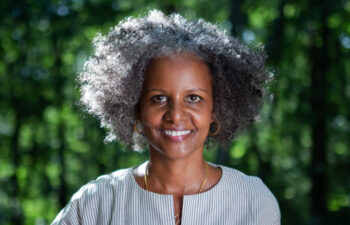
Sebene Selassie is a writer and teacher who guides people to trust the mystery and power of cosmic belonging. She offers courses, workshops, and retreats online and in person. She is trained as a meditation teacher, an integral coach, and as a practitioner of Indigenous Focusing Oriented Therapy. She is also a devoted student of mystic traditions including astrology. Selassie is a four-time survivor of Stage III and IV metastatic breast cancer. Her first book, You Belong: A Call for Connection, was published in 2020.
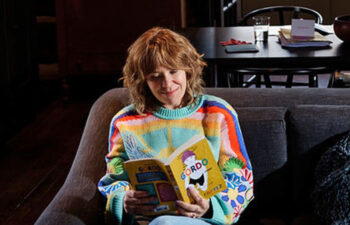
Michelle Tea is the author of countless books, including the Lambda Literary Award–winning Valencia and the PEN America award-winning Against Memoir. She has been awarded honors from The Rona Jaffe Foundation and the Guggenheim Foundation for her writing. As creator of Drag Queen Story Hour she has been honored with awards from the California Library Association and Logo Television. After curating imprints with City Lights Publisher and The Feminist Press, in 2023 Tea created DOPAMINE Books, an independent press.
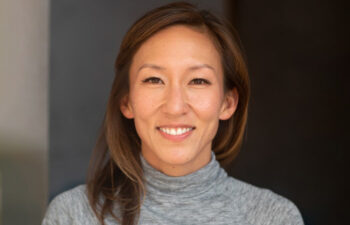
Dr. Kay Tye earned her bachelors from MIT, majoring in brain and cognitive sciences, and her PhD for thesis work with Patricia Janak at the University of California San Francisco, focusing on how the amygdala undergoes plasticity for reward learning. She did her postdoctoral training with Karl Deisseroth at Stanford University, where she pioneered the use of projection-specific optogenetic manipulations, a mainstay of circuit neuroscience, and used this approach to dissect anxiety circuits in the amygdala. She started her own lab at MIT in 2012, investigating the neural circuit mechanisms of emotional valence. In 2017 she won the NIH Director’s Pioneer Award to study social homeostasis, a conceptual framework she formalized in 2019. Dr. Tye moved her lab to the Salk Institute in 2019 and became Wylie Chair Professor of the Systems Neurobiology Laboratory. In 2021 she became a Howard Hughs Medical Investigator and continues to investigate the neural bases of emotional valence and social homeostasis on the circuit and systems level.
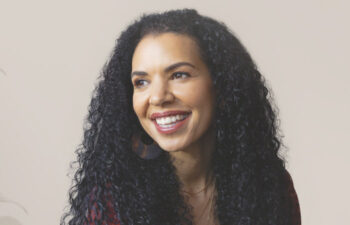
Spring Washam is a meditation teacher, author, and visionary leader based in Oakland. She is the author of A Fierce Heart: Finding Strength, Courage and Wisdom in Any Moment and her newest book, The Spirit of Harriet Tubman Awakening from the Underground. Washam is considered a pioneer in bringing mindfulness-based healing practices to diverse communities. She is one of the founding teachers at the East Bay Meditation Center. Washam received extensive training by Jack Kornfield, is a member of the teacher’s council at Spirit Rock Meditation Center in northern California, and has practiced and studied Buddhist philosophy in both the Theravada and Tibetan schools of Buddhism since 1999. In addition to being a teacher, she is a shamanic practitioner and has studied indigenous healing practices since 2008. She is the founder of Lotus Vine Journeys, an organization that blends indigenous healing practices with Buddhist wisdom in South America. Her writing and teachings have appeared in many online journals and publications such as Lion’s Roar, Tricycle, and Beliefnet. Washam has been a guest on many popular podcasts and radio shows. She currently travels and teaches meditation retreats, workshops and classes worldwide.
Get the latest news and stories from the Rubin, plus occasional information on how to support our work.